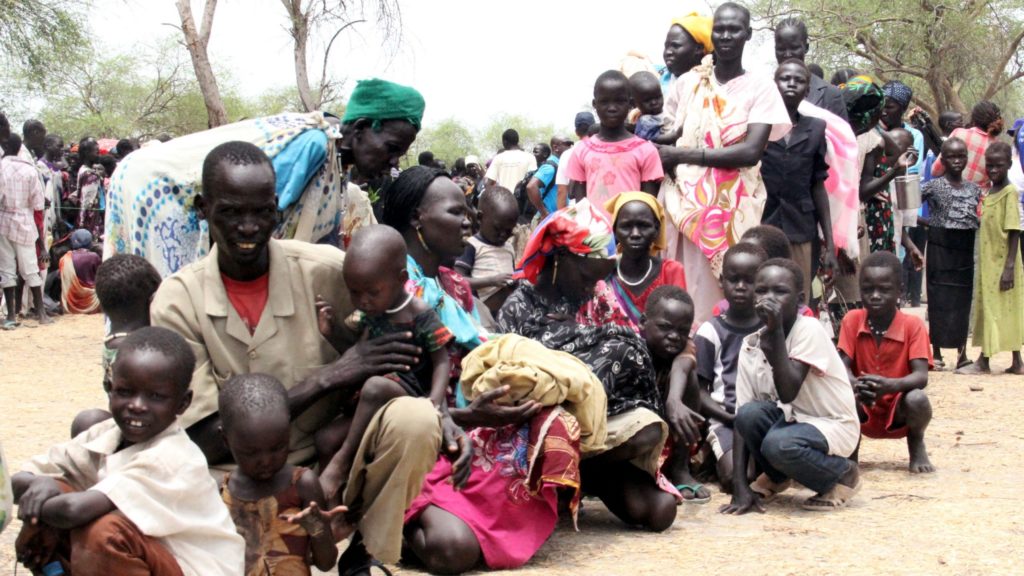Africa's largest displacement crisis has seen nearly 4.5 million people flee their homes due to deadly civil conflicts and environmental disasters in South Sudan. Pope Francis was scheduled to meet with some of them Feb. 4 during his three-day "ecumenical pilgrimage" to the country with Anglican Archbishop Justin Welby of Canterbury and the Rev. Iain Greenshields, moderator of the Church of Scotland.
Since 2013, violence ranging from concentrated attacks between rivaling ethnic groups to full-on civil war has gripped the world's youngest nation, which declared its independence in 2011. A peace agreement was signed between the two largest warring parties in 2015 only to fall apart a year later. A revitalized peace agreement was signed in 2018.
"There is a peace agreement, but there is still active subnational violence," Charlotte Hallqvist, an officer of the U.N. refugee agency, UNHCR, in South Sudan, told Catholic News Service Feb. 2. "Ethnic conflicts are on the rise."
Fueling the displacements is an "overlap of crises," she said. South Sudan is experiencing its fourth year of historic flooding, which has only deepened tensions between ethnic groups.
"South Sudan has always seen flooding, but the seasonal flooding is not disappearing, causing people to move into regions traditionally populated by members of other ethnic groups," Hallqvist explained. "That leads to competition for land and resources that fuels ethnic tensions."
"What we are seeing are waves of displacement," she told CNS. "People haven't been displaced once, but twice, three times, four times," she said.
Thousands of those displaced persons end up in "Protection of Civilians" sites operated by the United Nations similar to refugee camps, such as the one in Malakal, where Father Michael Bassano, a Maryknoll missionary from Binghamton, New York, has worked since 2013. He estimates that between 40,000 to 50,000 people currently live there.
Father Bassano ministers to the Catholic community in the Malakal site composed of some 2,000 people primarily belonging to three ethnic groups. Two of these, the Shilluk and the Nuer, continue to actively fight each other in the country's Upper Nile State.
"We said we would only have a church if all ethnic groups are involved," he told CNS. "There was opposition to praying with people from the other group, but we kept saying in the church that if we are one family of God, we have to move beyond these divisions."
Father Bassano was scheduled to introduce several displaced persons from the Malakal site to Pope Francis during the pope's meeting with internally displaced persons from throughout the country in Juba Feb. 4.
The pope's visit, said Father Bassano, shows those he works with "that people are praying for them and care for them at this time when the violence continues. They need to be encouraged that they can have peace and the violence will come to an end."
"These people literally have nothing, they've lost their land, livelihoods, homes. Yet they are surviving in the camps because of their faiths," he said.

